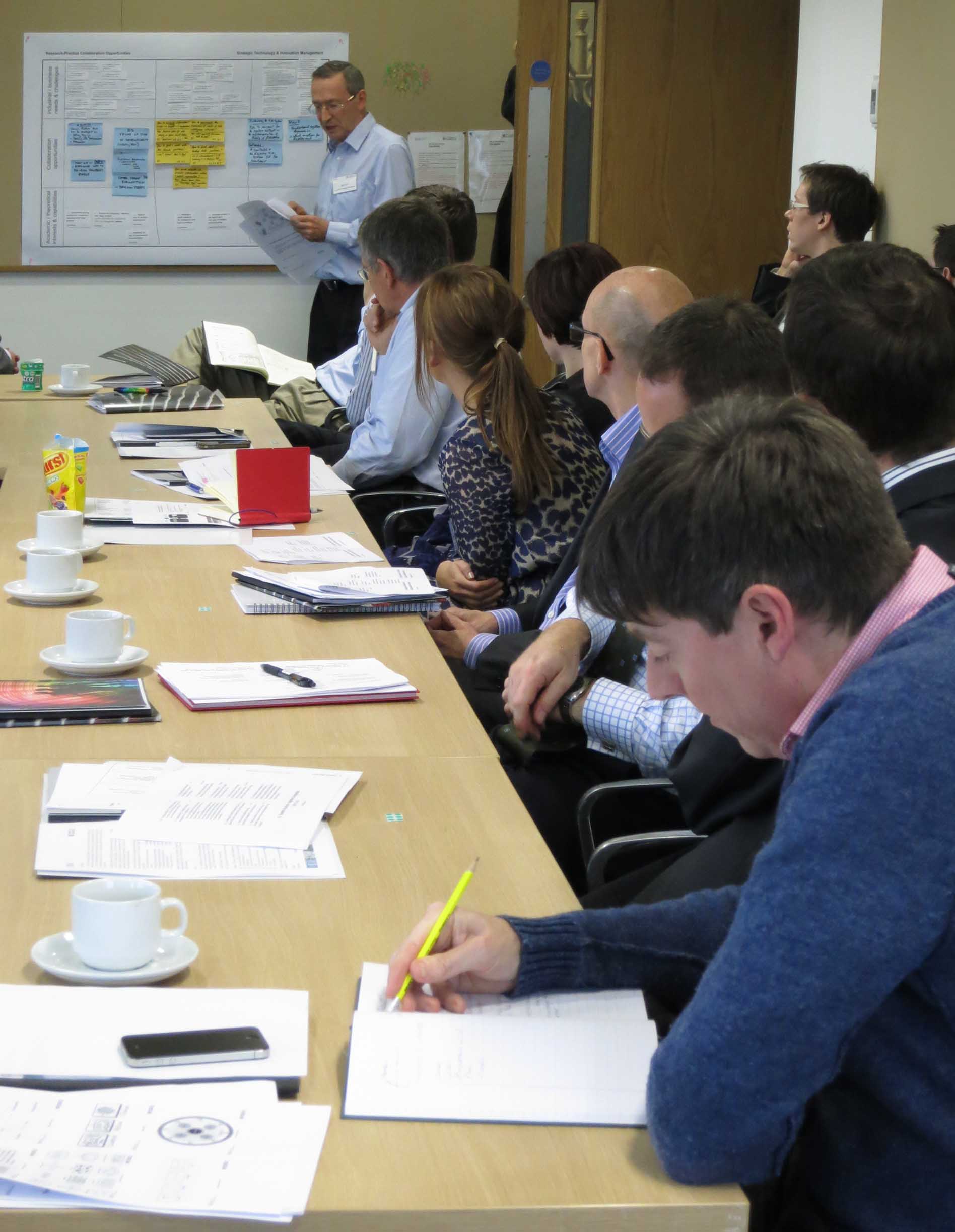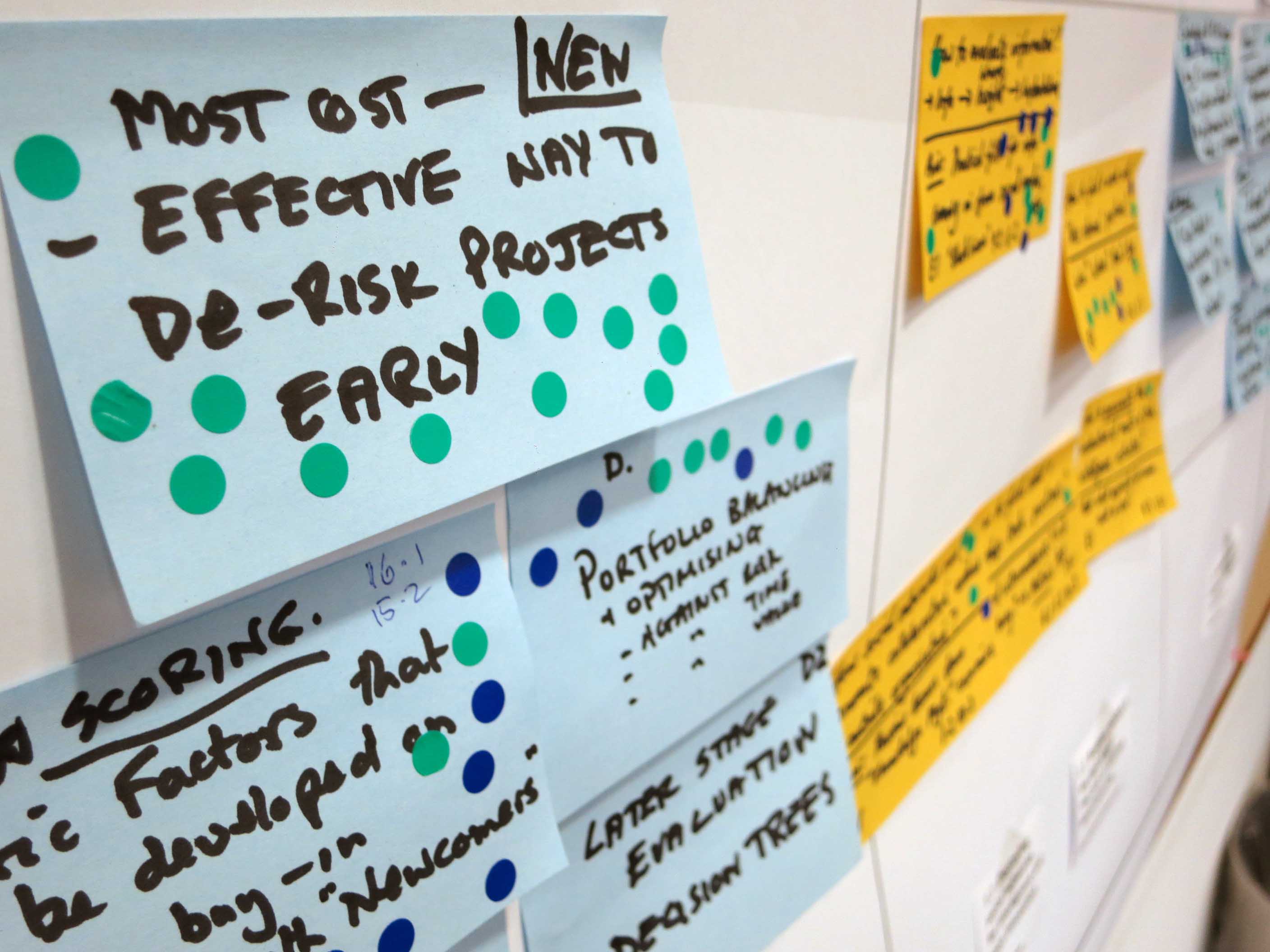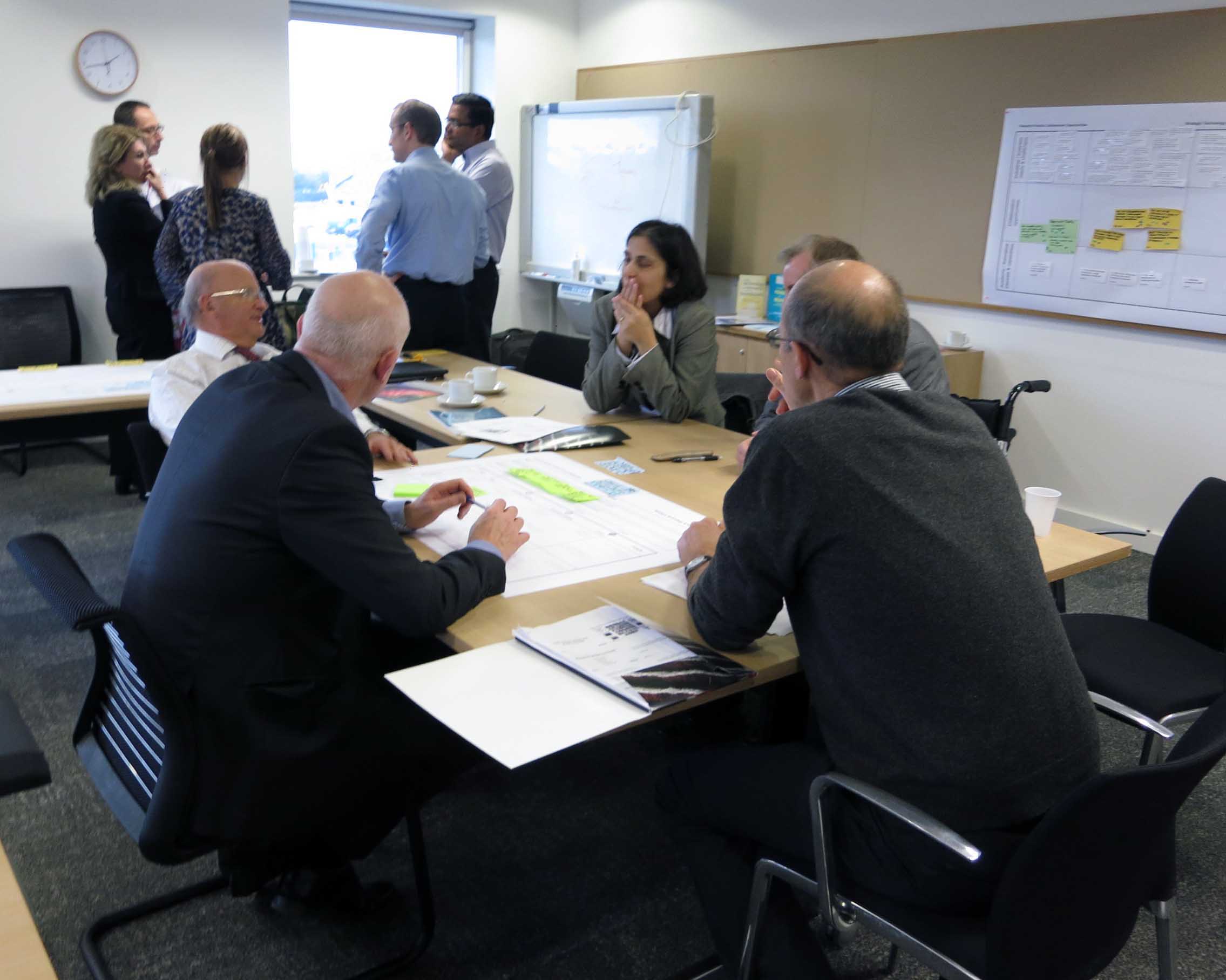Strategic Technology and Innovation Management Consortium 2013
The 2013 STIM Programme focussed on seven areas:
1) Innovation strategy 'lite' - the roadmap-portfolio toolkit
Aligning technology investments with business objectives is critical for successful innovation. Existing tools and approaches such as roadmapping and portfolio management are often perceived as heavy weight strategic management processes. Smaller companies need dynamic, easy to operate tools with tangible immediate value. Such approaches are also expected to find utility in large companies, especially at the front end of the innovation process.
Project lead: Clare Farrukh (cjp22@cam.ac.uk)
2) Organising the front-end of innovation

The very early stages of the innovation process, often called the fuzzy front end, involves a number of distinct processes and decisions before formal innovation projects are initiated. While new product development techniques are well understood, the diversity of techniques for idea generation, collection and selection, and opportunity identification and analysis, means that there is significant variety in how companies organise the front end of innovation. An improved understanding of how different techniques can be configured and matched to different innovation strategies and project types will provide practitioners with the ability to improve the process for feeding the innovation pipeline.
Project lead: Dr Simon Ford (sjf39@cam.ac.uk)
3) Articulating strategic content: a template-based approach
The visual communication of strategy is often an afterthought, or even completely overlooked, when a strategic plan is being developed. An important part of strategic planning is depicting a vision of the future and developing a set of scenarios. Although there is a large body of work on the subject of futures, the guidance is primarily process-centric and there is a lack of clear advice on the appropriate visualisation elements. As a theme for 2013, this project will explore the differing forms of representation together with the type of information populated onto the visual canvas.
Project lead: Dr Clive Kerr (civk2@cam.ac.uk)
4) De-risking projects early

Risk management in innovation has been largely focussed on the latter stages of innovation (during projects), when product/process innovation ideas have become concrete and formed into projects. While there are effective techniques for carrying this out, this constrained focus on risk management project management neglects earlier phases of the innovation process. By giving explicit attention to how risk (and uncertainty) can be managed right from the early phases of innovation (idea generation and selection, and opportunity identification and analysis), it may be possible to spot and mitigate some of these issues early on so that ideas can be formed into projects with greater confidence of success.
Project lead: Imoh Ilevbare (imi22@cam.ac.uk)
5) Customisable scoring systems for project selection
Scoring systems are widely used for early-stage project selection when only incomplete information is available. However, there is little guidance in the literature on how to choose the factors and how best to structure the scoring process. Clearly different factors are required for different types and stages of project. The aim is to develop a logically consistent approach that can apply to different kinds of project and can evolve if necessary as projects mature. A workshop-based process will be piloted in collaboration with companies to select projects and balance portfolios, customised to industry, company and innovation context.
Project lead: Prof Rick Mitchell (rfm26@eng,cam.ac.uk)
6) Communicating intelligence
One of key challenges in today’s knowledge economy is to extract meaning and useful insight from the abundance of information continuously reaching us. This challenge is particularly relevant for those involved in business, market and technology intelligence. They have the tasks of 1) Capturing information from a number of sources; 2) Developing insight, extracting meaning from the information; and 3) Delivering the insight to the decision makers in a form which can be appreciated and assimilated (e.g. in a form which overcomes any cognitive barriers). It is up to the decision makers to then 4) Assimilate the insight; and 5) Use it. This project will explore how intelligence teams can derive business insight from data and information gathered, and how they can communicate this effectively to decision makers so that it can be used.
Project lead: Dr Letizia Mortara (lm367@cam.ac.uk)
7) Technology leadership and deployment – sharing best practice

The establishment of an effective and enduring technology management system is a key objective for many organisations. Such a system would incorporate appropriate tools and techniques, while being adapted to the context of a particular organisation. The means to achieve this are currently not fully understood, and being of both practical and academic interest, remain a long term objective of the STIM research consortium. Key elements of such a system are the effective deployment of technology (from research and development into use) and the activities of technology leaders. This project addresses these two initial aspects in a practical manner, building on prior research on the role of the CTO.
Project lead: David Probert (drp@eng.cam.ac.uk)










